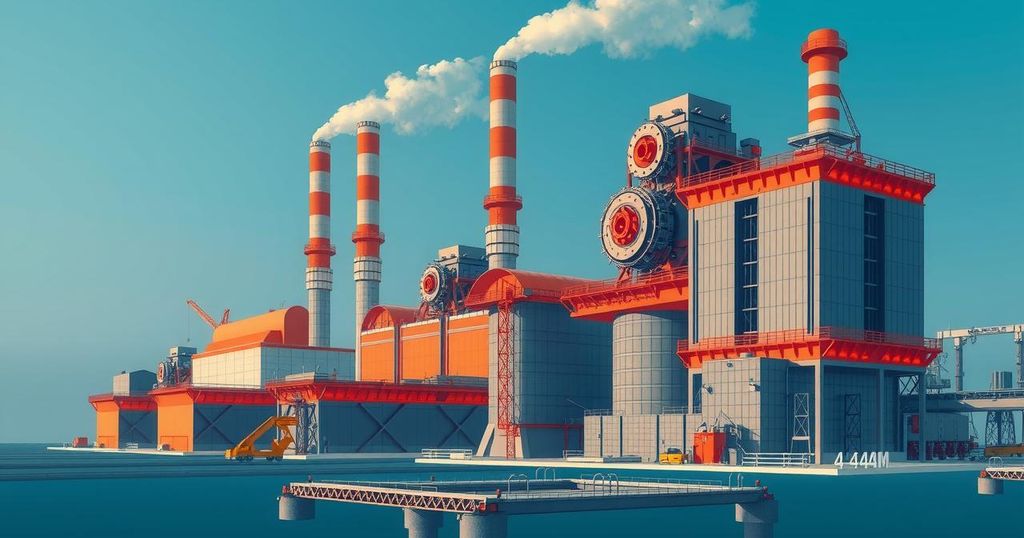The Imperative for U.S. Industrial Dominance Amidst China-Europe Alliances

The article discusses the importance of the U.S. asserting its industrial dominance due to China’s growing economic ties with the EU. It highlights risks posed by China in various sectors, including automotive and aerospace industries, and stresses the need for policies that empower American companies to maintain competitiveness and secure national interests.
President Donald Trump emphasizes that the economic security of the United States is intrinsically linked to its national security. The U.S. must focus on reshoring jobs across critical industries and fostering commerce to sustain advancements in technology and employment amid growing global competition. While the U.S. maintains a leadership role in various sectors including AI, finance, and healthcare, this position is increasingly vulnerable to challenges posed by China and shifting relations with traditional allies in the European Union.
As China aims to diminish U.S. influence and expand its global reach, it is strategically partnering with the European Union, which consists of 27 nations. China is tightening its control over European markets in vital sectors such as automobile manufacturing, clean energy, technology, aerospace, and defense. Consequently, as the EU shifts to reduce its dependence on U.S. support for national security, economic ties with China continue to strengthen.
China’s rise in the automotive sector cannot be overlooked; it has become the largest car exporter globally, significantly attributing its success to the demand for Chinese electric vehicles in Europe. By 2023, the export figures for Chinese EVs to Europe exceeded those of their American counterparts. Furthermore, forecasts suggest that Chinese brands could capture nearly 10% of the European market by 2034, despite the EU imposing tariffs on them.
The European Union is also striving to achieve climate neutrality by 2050. However, this initiative has inadvertently increased reliance on China for essential raw materials necessary for solar and wind energy infrastructures. Reports indicate that 75% of solar modules recently installed across Europe have been imported from China, highlighting the vulnerabilities in Europe’s energy supply chains.
China’s ambition to surpass the U.S. in technology is evident through its “Made in China 2025” initiative, which aims to lead global advanced manufacturing, especially in AI, robotics, and clean energy. Additionally, China has surpassed the U.S. in patent applications and is investing heavily in semiconductor production and green technologies to minimize reliance on American advancements while monopolizing critical supply chains.
The state-backed Chinese aerospace sector poses a tangible threat, as it seeks to deepen investments in Airbus while competing directly with major American manufacturers such as Boeing. Supporting domestic aerospace companies is crucial not only for economic interests but also for national security as they are pivotal in developing leading-edge military technologies.
America faces a pivotal moment; recent regulatory measures from the Biden administration have challenged the positions of American industry giants, threatening their global competitiveness. Should China continue to dominate essential industries—be it through electric vehicles in Europe, renewable energy supply chains, or technological advancements—there is a risk of surrendering the U.S. economic landscape to a regime seeking to displace America.
Boeing, despite facing difficulties, exemplifies the importance of advocating for American enterprises in the face of competition from entities allied with China. If American-made companies do not receive the necessary support to compete effectively, it will allow adversaries to control critical aerospace and defense arenas, endangering national security.
Republican lawmakers are urged to align with President Trump’s America First strategy, focusing on bolstering U.S. companies for long-term competitiveness and leadership on the global stage. The initiative to advocate for American innovation is essential for safeguarding the nation’s future, protecting national interests, and maintaining a position as the leading technology superpower in the world.
To prevent compromising critical sectors, it is imperative to adopt policies that foster American enterprise, support innovation, and ensure the United States retains its role as a foremost contributor to global technological advancements.
In summary, the United States must reaffirm its industrial dominance as China strengthens its ties with the European Union. Heightened competition in critical sectors underscores the urgent need for robust policies that protect and promote American industries. Failure to do so risks ceding economically vital ground to adversaries, fundamentally threatening national security and America’s future as a global leader in innovation and technology.
Original Source: www.foxnews.com




